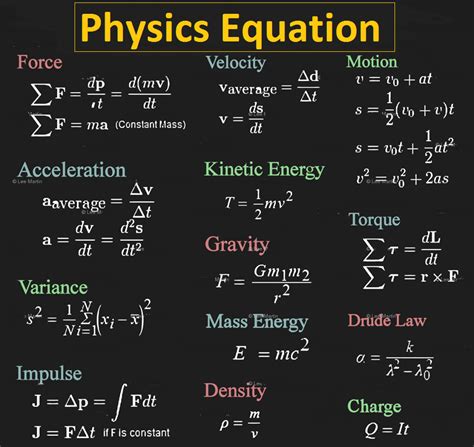Physics, a fundamental branch of science, is the study of the natural world around us. It involves the exploration of the underlying laws and principles that govern the behavior of energy, matter, and the universe as a whole. From the smallest subatomic particles to the vast expanse of the cosmos, physics seeks to understand the intricate dance of forces and interactions that shape our reality. With its roots in ancient civilizations, physics has evolved over centuries, incorporating the contributions of numerous scientists and thinkers who have helped unravel the mysteries of the physical world.
The term "physics" originates from the Greek word "physikos," meaning "natural," and is closely related to philosophy, as both disciplines aim to comprehend the fundamental nature of existence. Physics encompasses a broad range of subfields, including mechanics, electromagnetism, thermodynamics, quantum mechanics, and relativity, each addressing specific aspects of the physical universe. By applying the scientific method, physicists develop and test theories, using empirical evidence and mathematical formulations to describe and predict the behavior of physical systems. This systematic approach has enabled remarkable advancements in our understanding of the world and has led to numerous breakthroughs in technology, engineering, and other fields.
Key Points
- Physics is the study of the natural world, focusing on the laws and principles governing energy, matter, and the universe.
- The discipline encompasses various subfields, including mechanics, electromagnetism, and quantum mechanics.
- Physicists use the scientific method to develop and test theories, relying on empirical evidence and mathematical formulations.
- Advances in physics have led to significant breakthroughs in technology, engineering, and other fields.
- Understanding physics is essential for addressing complex global challenges, such as energy sustainability and environmental conservation.
Branches of Physics

Physics is a diverse field, comprising multiple branches that investigate distinct aspects of the physical world. Mechanics, one of the oldest and most fundamental branches, deals with the study of motion, forces, and energy. It is further divided into subcategories, such as kinematics, dynamics, and statics, each focusing on specific aspects of motion and force. Electromagnetism, another crucial branch, explores the interactions between electrically charged particles and the electromagnetic force, which is a fundamental force of nature.
Thermodynamics, a branch that emerged in the 19th century, examines the relationships between heat, work, and energy. It has far-reaching implications for our understanding of energy conversion, efficiency, and the behavior of systems in equilibrium. Quantum mechanics, a relatively modern branch, delves into the behavior of matter and energy at the atomic and subatomic level, revealing the strange and counterintuitive nature of the microscopic world. Relativity, developed by Albert Einstein, revolutionized our understanding of space and time, introducing concepts such as spacetime, gravity, and the speed of light as a universal limit.
Applications of Physics
The impact of physics on our daily lives is profound and far-reaching. From the simplest devices, such as clocks and bicycles, to complex systems, such as computers and medical imaging equipment, physics plays a vital role in shaping our technological landscape. The development of transistors, for instance, relied on the understanding of semiconductor physics, while the creation of lasers depended on the principles of quantum mechanics. In the field of medicine, physics has enabled the development of life-saving technologies, including magnetic resonance imaging (MRI) and radiation therapy.
| Branch of Physics | Application |
|---|---|
| Mechanics | Design of engines, bridges, and buildings |
| Electromagnetism | Development of electrical power systems, communication networks, and medical equipment |
| Thermodynamics | Optimization of energy conversion, refrigeration, and air conditioning systems |
| Quantum Mechanics | Creation of transistors, lasers, and computer chips |
| Relativity | Development of GPS technology, high-energy particle accelerators, and our understanding of the universe |

Challenges and Opportunities in Physics

Despite the significant advancements made in physics, numerous challenges and opportunities remain. One of the most pressing issues is the development of sustainable energy sources, which requires a deep understanding of thermodynamics, materials science, and engineering. The pursuit of quantum computing, which relies on the principles of quantum mechanics, promises to revolutionize data processing and simulation capabilities. Furthermore, the ongoing exploration of the universe, from the search for dark matter to the study of black holes, continues to expand our understanding of the cosmos and its mysteries.
However, these endeavors are not without challenges. The complexity of physical systems, the limitations of current technologies, and the need for interdisciplinary collaboration often hinder progress. Moreover, the interpretation of physical theories, such as quantum mechanics and relativity, remains an active area of debate, with different perspectives and approaches being explored. By embracing these challenges and opportunities, physicists can continue to advance our understanding of the world, driving innovation and improving the human condition.
What is the importance of physics in everyday life?
+Physics plays a vital role in shaping our technological landscape, from the simplest devices to complex systems, and has numerous applications in fields such as medicine, energy, and transportation.
What are the main branches of physics?
+The main branches of physics include mechanics, electromagnetism, thermodynamics, quantum mechanics, and relativity, each addressing distinct aspects of the physical world.
How does physics contribute to our understanding of the universe?
+Physics has enabled us to understand the behavior of celestial objects, the expansion of the universe, and the properties of space and time, providing a framework for understanding the cosmos and its mysteries.


